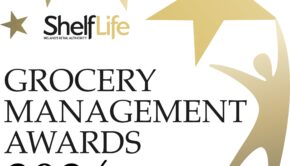In the papers this week 16 – 22 May 2009

Tánaiste Mary Coughlan considers regulating retailer-suppler relationship; Tesco management faces criticism from potato farmers; NCA and Tesco share same PR firm
22 May 2009
An Tánaiste Mary Coughlan is considering introducing a code of practice to regulate the relationship between suppliers and retailers, states The Irish Times. She told the Dáil she was examining proposals for a code of conduct and said any retail company making a profit and sustaining its business "should grant price reductions to consumers as well as giving a fair return to suppliers".
Tesco has insisted it’s the world’s "biggest supporter" of Irish food and drink producers after a group of farmers stormed a meeting of its top managers earlier this week, reports The Irish Independent. Around 30 potato growers burst into a meeting at a hotel, attended by chief executive Terry Leahy and 200 managers, to demand that British potatoes such as Desiree don’t replace the Irish version on Tesco’s shelves.
Supermarkets are seeking reductions of up to 40% from organic suppliers, according to the Irish Organic Farmers and Growers Association (IOFGA) in the Irish Independent. The country’s biggest organic poultry producer JJ Ahern added others copying Tesco’s pricing on organic chickens, would sound "the death knell of organic poultry in supermarkets."
Fine Gael agriculture spokesman Michael Creed has compared Ireland’s retail sector to the "wild west," reports the Irish Times. According to Creed, Irish suppliers are being "led like lambs to the slaughter by the multiples." He pointed out in the Dáil that last August, multiples had a 177% mark-up for milk, for which farmers were getting 31 cent a litre, now reduced to only 21 cent.
The Wexford People meanwhile has drawn attention to the fact Tesco’s diesel is considerably cheaper in New Ross than in Wexford town. Diesel is priced at 97.9c per litre in Tesco New Ross, whereas it costs 100.9c per litre in Wexford town, 34km away. The paper suggests Tesco adheres to its own slogan, ‘Every Little Helps.’
Consumer watchdog NCA has come under fire after it emerged it shares the same PR firm as Tesco, reveals the Irish Independent. Fine Gael enterprise spokesman Leo Varadkar said a potential conflict of interest could arise in having the Q4 firm representing "the NCA, which is doing price surveys on Tesco products," and "putting out ads telling you how cheap Tesco is." Q4 responded it used a ‘Chinese Walls’ system, with separate staff working on each project.
Britvic chief executive Paul Moody has said the company has no regrets about entering the Irish market back in 2007, despite experiencing a considerable fall in operating profits here. The Irish Examiner reports Britvic’s Irish operating profits fell from £4.3 million (just under €5m) to zero in the half-year to the end of March.
No doubt the company which makes Robinsons squash and Pepsi, was buoyed by its results in the UK. The Telegraph reports sales rose 6.3% to £483.2m in the six months to mid April, and Britvic increased its UK market share in both fizzy and still drinks.
Local election candidate Jane Dignam has started a petition urging Dunnes to open its store in Newtown, reports the Wexford People. Ms Dignam found the issue kept arising on doorsteps. The "people of Newtown really want this store to open; it’s a disgrace to leave the town hanging like this," she said.
The Irish Independent had an extensive interview Aldi Ireland chief Donald Mackay this week, which showed the retailer in a positive light. In the wake of what the paper dubbed Tesco’s "PR indigestion," Mackay’s PR was decidedly less complicated, although he did have to field questions on certain Irish-labelled products hailing from the north.
The North Cork Newmarket Co-op has reported a sharp fall in operating profits in 2008 reflecting tough international dairy conditions, according to the Irish Examiner. Profits before exceptional items fell from €1.448 million to €268,000, and the group said retained profits for the year amounted to €3.15m
Echoing early morning queues stretching down Grafton Street for M&S’ Penny Bazaar offering, the Daily Mail (UK) reports on "penny pandemonium" as boiled sweets and drinks rapidly became the only items available throughout UK branches. For example, the Slough branch sold 1,000 items in precisely 114 minutes after doors opened at 9am.
However, the task of finding a chief executive to succeed Sir Stuart Rose at Marks and Spencer became even more difficult this week as a leading candidate, Carl Leaver resigned. The Independent (UK) reports the retailer has posted a 40% slump in profits and risked the ire of its private shareholders by slashing its dividend for the first time in nearly a decade.
M&S has broadened the role of finance director Ian Dyson to include the company’s international expansion, reports the Irish Independent. Dyson will take on additional responsibilities from Carl Leaver, who is due to leave in the next two to three months; fuelling speculation that he may succeed Stuart Rose as the retailer’s next chief in 2011.
Perhaps a less well known Tesco-related story this week is that, the multiple, along with other British retailers may be called in by India’s Congress Party to help modernise its farming industry. The Telegraph reports the retailers will be asked to overhaul the inefficient production and distribution systems which result in up to half of the annual crop rotting before reaching market.
Sales of cans to the wine industry are rocketing, albeit from a low base, reports The Times (UK). John Revess, of Rexam, one of the world’s largest can makers, said that the group had sold six million cans to the wine industry in 2006, a figure that increased to 35 million last year. Cans of wine are believed particularly popular at music festivals, where glass is often banned.



 Print
Print






Fans 0
Followers